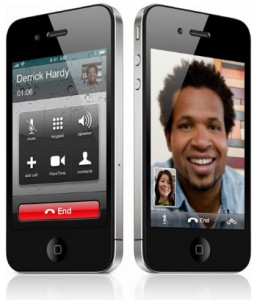
Apple’s decision to make its FaceTime video chat app compatible with cellular networks has been a big headache for AT&T.
And the carrier’s solution has been just as problematic: Rather than offer unrestricted access to the app, AT&T is forcing its subscribers to sign up for its Mobile Share data plans in order to use it on the AT&T cellular network. Regulators and consumers alike have been unhappy with the move, which limits the amount of control AT&T’s subscribers have over their devices.
And how does AT&T defend the decision? By playing games with the Federal Communication Commission’s net neutrality rules.
June 5th: The AI Audit in NYC
Join us next week in NYC to engage with top executive leaders, delving into strategies for auditing AI models to ensure fairness, optimal performance, and ethical compliance across diverse organizations. Secure your attendance for this exclusive invite-only event.
“AT&T does not have a similar preloaded video chat app that competes with FaceTime or any other preloaded video chat application,” AT&T senior vice president of regulatory affairs Bob Quinn wrote today, in an effort to convince the public that AT&T actually isn’t unfairly competing with FaceTime.
 Of course, AT&T doesn’t have a video chat app — but its cellular service is effectively one big voice chat app. Quinn’s defense completely sidesteps the largest concerns that groups like Public Knowledge have had from the beginning: FaceTime is a direct competitor to AT&T’s voice services, and AT&T’s new rules cut into subscribers’ ability to use the app.
Of course, AT&T doesn’t have a video chat app — but its cellular service is effectively one big voice chat app. Quinn’s defense completely sidesteps the largest concerns that groups like Public Knowledge have had from the beginning: FaceTime is a direct competitor to AT&T’s voice services, and AT&T’s new rules cut into subscribers’ ability to use the app.
And that’s a big no-no for the FCC.
Quinn also defended the move by arguing that the FCC rules do not regulate whether cellular network operators can control apps that come pre-installed on phones they offer. The problem? The FCC rules say nothing about preloaded apps.
“There is simply nothing in the rules that distinguishes ‘preloaded’ applications from ‘downloaded’ applications,” Free Press Research Director S. Derek Turner said in a statement today.
While the company has valid concerns that FaceTime could negatively impact network performance, the far more pressing reality is that if its customers are using FaceTime, they’re not chatting over AT&T’s voice network.
If network performance was truly a concern, AT&T would just ban FaceTime outright (not that this is something it would be legally able to do anyway). Instead, it’s splitting its subscriber base between those who have Mobile Share data plans and those that don’t. And it’s that division that’s drawing the attention of those who want to keep cellular networks as neutral as possible.

